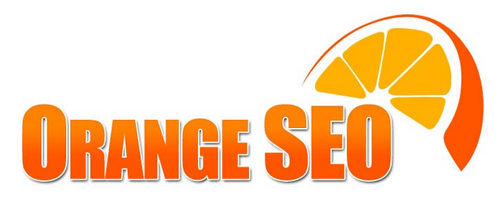Over the years, Wikipedia is becoming a minefield for marketers causing more trouble than it is worth. Wikipedia is effective and can be used by content marketers to assist with SEO and donate to the assignment of this world's largest encyclopedia.
Content marketers misunderstand how backlinks work in Wikipedia. They believe that in case the topic is applicable, simply adding a link to the "external link" section to the wiki page is good enough. Not so.
Adding a hyperlink to Wikipedia is like surgery -- if not performed properly it can cause issues, including being banned from Wikipedia and getting your domain listed as spam.
It is tough to obtain a Wikipedia link but if done correctly, it can still be a great benefit to your SEO.
Going from do-follow to no-follow
Let's look at how backlinks have shifted in Wikipedia through the years. When Wikipedia started in 2001, backlinks were "do-follow" -- made for SEO purposes. With the heavy weighting of its backlinks on Wikipedia, marketers were quick to see the SEO value of adding links to Wikipedia.
Wikipedia editors caught on to this SEO tactic. The community required enormous steps to help curb spam, including changing links to "no-follow," which have less SEO impact, and creating a blacklist to block domains they believed spam.
Now, though no-follow backlinks have little to no effect on SEO value, Wikipedia backlinks are some of the most coveted in the digital marketing industry. This is because Google gives weight to Wikipedia hyperlinks regardless of the fact that they're no-follow.
Identifying where to link
I will share in procuring Wikipedia backlinks what works, according to my professional experience.
Do not simply look for citation-needed entries. If the links don't bring about the entry's quality, they will be eliminated and blacklisted. In these scenarios, you have a better chance to contribute quality articles expanding the knowledge shared on that topic and contributing to Wikipedia's aim of freely sharing knowledge.
Find Wiki pages in dire need of cleanup and expansion. In these cases, you've got a better chance to contribute quality content expanding the knowledge shared on that subject and contributing to Wikipedia's aim of freely sharing knowledge.
Understanding the types of hyperlinks
Now you know where to find Wiki pages for your links, let's look at the kinds of hyperlinks:
Make sure the links come from a trusted source. Wikipedia's principles of reliable sources are extended. Basically, don't use self-published sources (press releases, etc.) and make certain the linked website uses fact-checkers to guarantee the accuracy of articles.
Check whether Wikipedia already believes the source is dependable. Watch if the cited website has its own article. For instance, AdAge has. A site that's been used a lot of times increases the odds of this being accepted as a reliable source.
See if your cited website has been used as a backlink. Go to the search box and type in the URL that you want to check. A site that has been used numerous times also increases the chances of it being accepted as a reliable source.
Make sure the link is more than a landing page. A link to a landing page without information to support the content is considered spam by Wikipedia editors.
Link directly to the relevant content page. The link must have content that supports the information you are adding. For instance, if you are adding information about advertising, you cannot simply link to your website’s home page as an authoritative source. You must connect to the exact page that supports the content, similar to how you would cite sources in a research paper or industry study.
Putting it together
It's time to bring the link. To do things you need to donate to the encyclopedia -- adding more links than only the backlink that you want to include.
Here's an example of how it works:
Let's say you need to add a connection from The Motley Fool to the Big King sandwich post on Wikipedia. The link is related to 2014. In addition, it contributes to Wikipedia although adding the link not only enables you to put the link you need.
In addition, you have a USA Today citation about the advertising of the Big King -- though you are not looking to secure a backlink to USA Today, integrating it provides credibility to the entry.
Now, you must write the material for the entrance which's encouraged by the citations:
“In 2014, Burger King reintroduced the Big King as direct competition to McDonald’s Big Mac. (USA Today citation) Part of its advertising campaign was that the beef used on the sandwich was bigger than that of the Big Mac. (The Motley Fool citation)”
By integrating two credible sources into the added advice, you increase the chances your intended link (The Motley Fool) will survive scrutiny. I also propose adding much more information to the entry to truly boost the value of your contribution.
TIP: Follow the proper format to add hyperlinks. Be certain that you know what you are doing -- adding a link incorrectly can lead to an editor accusing you of spamming when you aren't.
I cannot reiterate it enough -- do not simply link from Wikipedia. Make sure that you do it properly and contribute along the way. Adding content that provides insight and quality is very likely to help your link building for quite a while and greatly benefit your SEO efforts. Remember so is not foolproof, there is NEVER a guarantee with Wikipedia.


